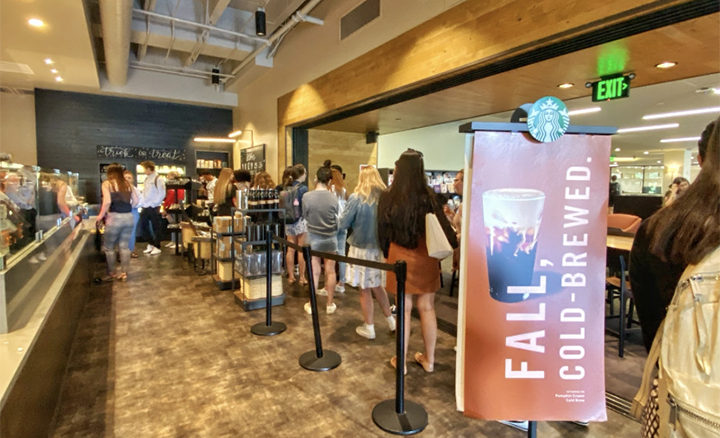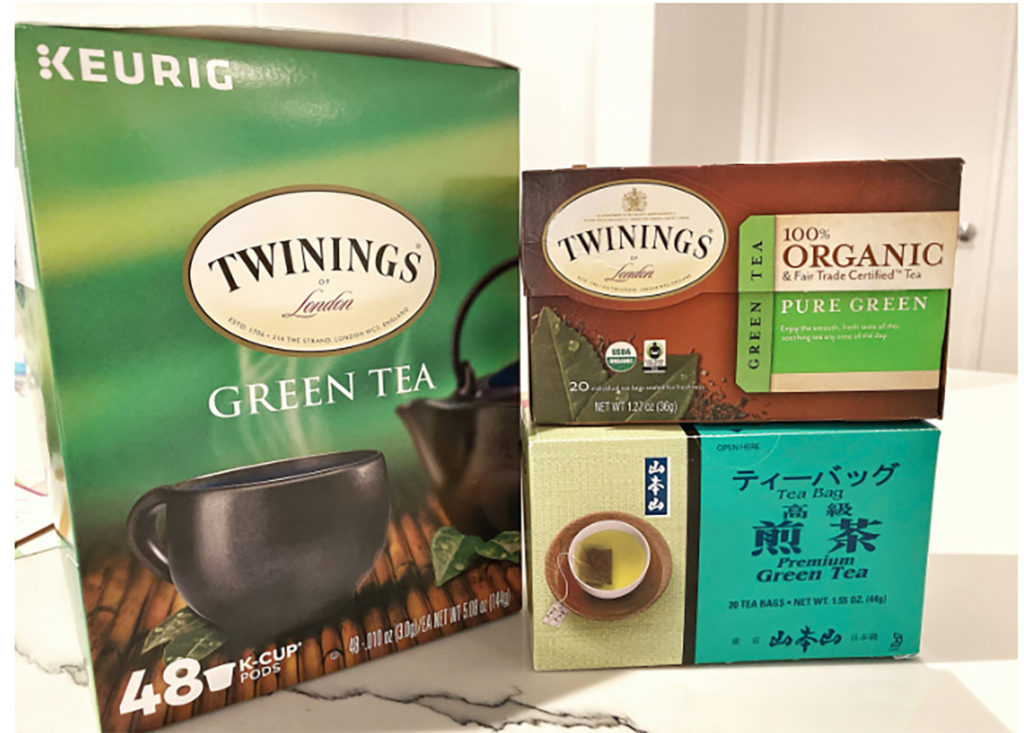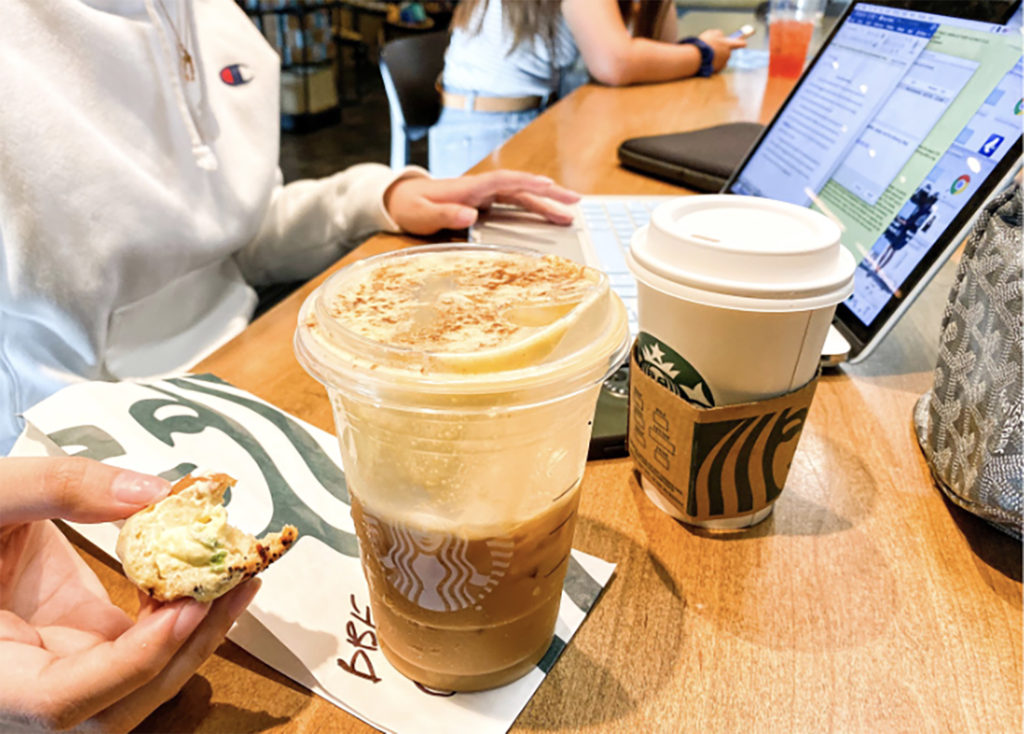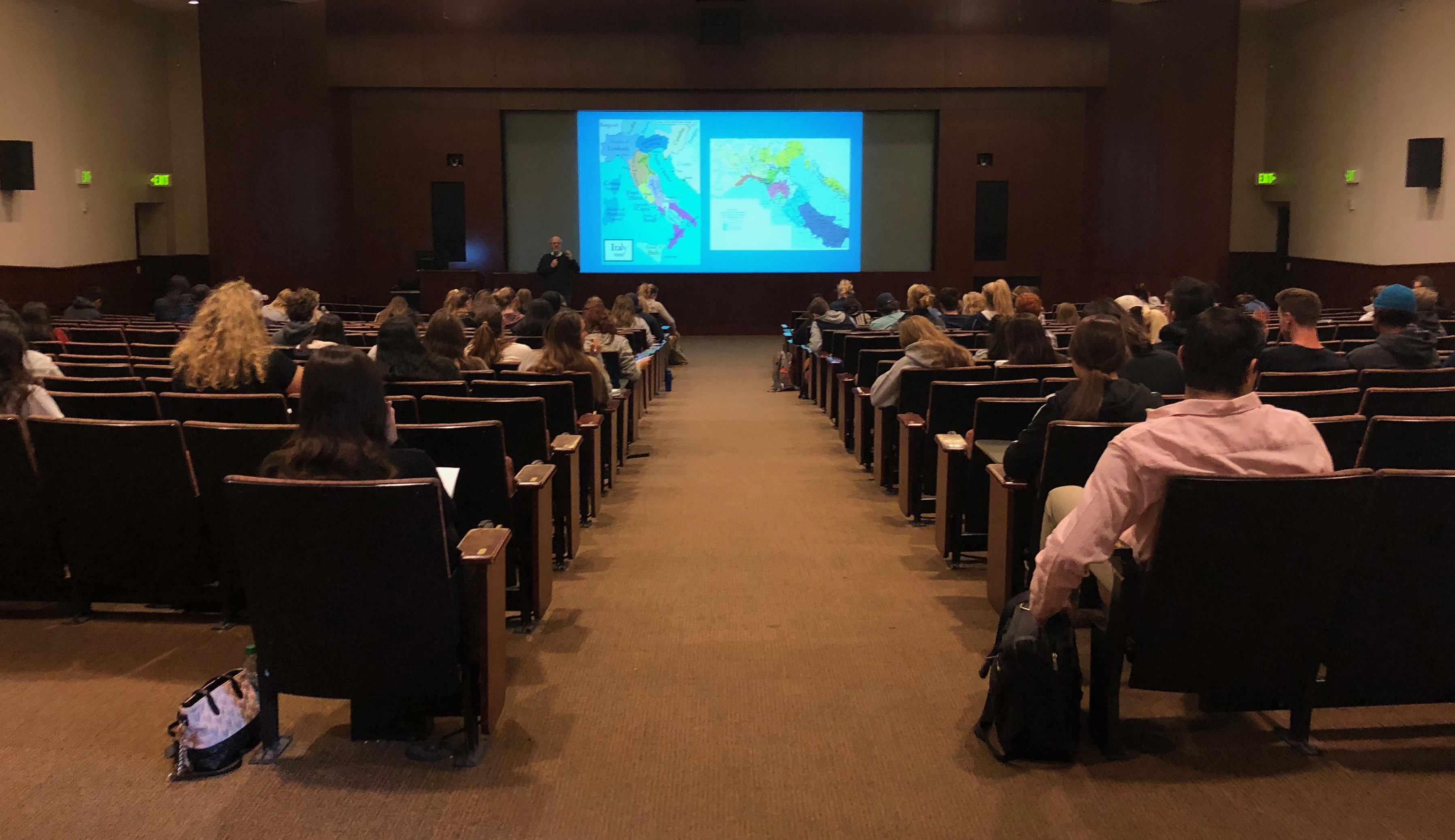
The consumption of coffee is undeniably popular among people in the United States. Approximately 75% of people under the age of 18 consume caffeine daily, according to a study in the Society for the Study of Addiction. For college students, the numbers are even greater — 78% of college students consume more than the recommended amount of caffeine daily, according to a study by the University of Kentucky.
As students consume more and more caffeine, there is a growing concern about the side effects, said Loan Kim, a professor of nutrition at Pepperdine University. However, experts agree that consumption in moderation has its benefits.
“The problem among college students is that they over-consume coffee more than what they really need,” Kim said. “Coffee can actually improve mental cognition or function. Students must be aware of what type of coffee they are consuming.”
Balance, moderation & variety
Students drink coffee for various reasons. According to a Pepp Post poll of 40 students, the top three reasons why they consume coffee are alertness/stimulation (66%), taste (61.7%) and social aspects (38.3%). Students have to be responsible when consuming coffee, as these are substances that work as stimulants. As long as students drink it in moderation, there are benefits, Kim said.
“There are three key elements to a healthy diet: balance, moderation and variety,” Nutrition Professor Lorie Kole said.
Coffee has a number of benefits that can be helpful for students.
The properties in caffeine can enhance individuals’ memory and mental performance, according to research published by Johns Hopkins.
“Students should be aware that too much caffeine can turn something that could be beneficial to something that may be detrimental,” Kole said.
Caffeine drinkers should also be aware of the time they drink coffee to prevent any intervention with their sleeping schedule. To avoid sleeping problems, students should drink coffee at least seven hours before their bedtime, Kim said.
Consuming more than 400 milligrams of caffeine daily may be hazardous to an individual’s health, Kole said.
When students consume more than the advised amount of coffee, they may become over-caffeinated.
Alternative options
There are various alternative options to coffee that students consider to help them stay alert. The most popular alternative that experts are aware of would be energy drinks.
“The alternatives to coffee would be Monster drinks, Red Bull and other energy drinks,” said Sparkle Greenhaw, a therapist in the Pepperdine Counseling Center.
However, those alternatives might not actually be effective and safe to consume in the long run, Kim said.
“It would be better for someone to drink a cup of coffee than consuming those energy drinks,” Kim said.
Experts said coffee is the safest when consumed in moderation.
“[If you are looking for] mental alertness and you don’t want to throw pictures of drugs that provide stimulants, coffee is probably the safest to consume,” Kim said. “If you do it in moderation, it could be a good thing and especially if you drink black coffee.”
Even though experts may say coffee is the safer and more effective option for a caffeine boost than energy drinks, some students at Pepperdine have a different opinion. Green tea is one of the most popular options after energy drinks for students who are looking for alternative options for coffee.
“My mom told me to drink green tea instead of coffee,” junior Clara Oey said. “Even though it is not as strong as coffee, I think it is effective to help me stay awake.”

According to research by the National Institutes of Health, the caffeine in green tea can be a source to improve mental alertness. Students who are looking for a milder alternative to coffee could consider green tea as an option.
Types of Coffee
With the popularity of coffee among teenagers, coffee shops have been creating drinks and advertisements targeted at the younger generation. Coffee has become increasingly popular due to the variety of forms and flavors that specialty coffee shops and fast-food restaurants offer.
“If you drink a caramel frappuccino, it has very little caffeine but it has a lot of sugar,” Kim said. “In that case, it is not healthy. But if you drink just black coffee, it can be healthy.”
With coffee shops giving more options for drinks that contain coffee, it leads to students developing a new habit of exploring new flavors that are usually high in sugar.
“I love to purchase coffee every time Starbucks releases its seasonal drinks,” Beatrice Wangsawidjaja said. “I am not a fan of black coffee, but I enjoy drinking the sugary ones.”

Back in 2017, Pepperdine decided to open a Starbucks store located in Payson Library. By having Starbucks on campus, it allows students to have more access to a variety of coffee drinks. A caramel macchiato is the most popular order.
“Caramel macchiato is our most popular order,” Donahue said.
According to Starbucks nutrition information, a grande serving of caramel macchiato contains 33 grams of sugar and 0.15 gram of caffeine. The ratio between sugar to caffeine is 220 to 1 which is quite substantial; on top of that, 33 grams exceeds the daily recommended amount of sugar intake for teenagers.
Counseling and Education
Since students have been incorporating coffee into their routine, it is important for them to be informed, responsible coffee consumers. At Pepperdine, there are opportunities for experts to come to campus and talk to students about relevant topics. Experts could use this opportunity to raise awareness about coffee consumption among college students.
“Any form of education on caffeine consumption should be done to make students more aware,” Greenhaw said. “By doing this, it will help students make wise choices and aware of the help that Pepperdine has to offer.”
Consuming coffee can start so young that education on caffeine consumption might be necessary to avoid unwanted circumstances, such as over-consumption.
“American Academy of Pediatrics recommends that kids don’t consume caffeine because teenagers drink too much and they do not get enough education on how much coffee is too much for their bodies to handle,” Kim said
According to the poll, 54% of the respondents said they are not aware of the counseling resources available at Pepperdine; 18% are aware of it but do not know how it works.
“We do think that students are aware of the counseling system,” Greenhaw, said. “The best way to get the words out there are through students who have previously come to our office.”
However, students might not think that it would be appropriated to come to the Counseling Center for dealing with a coffee addiction problem.
“I am aware of it, but I do not think that it would be necessary to go to the Counseling Center when I am dealing with the side effects from drinking coffee,” Marsudijaja said.
According to the data collected by the Counseling Center, caffeine addiction is not a major case in comparison to alcohol addiction.
“Based on the data we collected, there has not been any major cases on caffeine addiction,” Greenhaw said. “ However, students should be informed that they can come to us and talk about any problems, including caffeine side effects, that hinder them to do perform well at school.”
Regulation
The availability of coffee leaves some people to wonder if there should be government regulation.
“I think if you compare caffeine to other drugs, it is not harmful to your health as compared to alcohol and drugs,” Kim said. “It does not have the same negative effects as drugs.”
Since the side effects are not as severe as other drugs, it is sufficient for individuals to be educated by experts or parents before consuming, Kim said.
“There should parental guidance or control of what their children order in coffee shops,” she said. “Until we have more scientific data, I do not think there should be any government regulation that can be imposed.”
If the public demands on warnings increase, coffee companies or shops can provide warnings on the packaging, but until then, it will be an individual’s responsibility to educate themselves as to what they are putting in their body, Kole said.
Claudia Hardianto completed the reporting for this story under the supervision of Dr. Elizabeth Smith and Dr. Theresa de los Santos in Jour 241 in Fall 2019. Dr. Smith supervised the web story.



